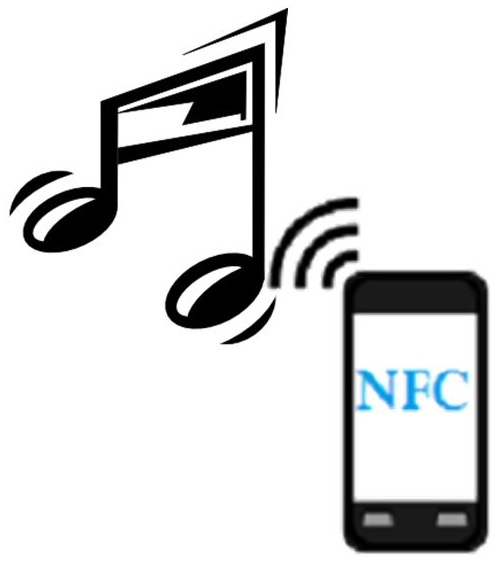This new service could help to easily and conveniently enhance the overall guest in-room experience.
It has become exceptionally common for travelers to bring smartphones into their hotel rooms with them, many of which are enabled with Bluetooth and NFC technology and the capability for picking up the hotel’s WiFi in order to stream music in a wireless way.
Now, hotel technologies are picking up on this in-room experience in order to provide sleek new audio solutions.
Among them is the iHome audio solution that is designed to help to make guests feel more at home throughout their stay. This service from Hotel Technology involves a device with NFC technology, Bluetooth, and USB charging. It has already been launched at a convention held in New York, and is now being worked into the experience at hotels that wish to stay at the cutting edge of what tech has to offer their consumers.
Many hotels are already embracing the mobile world, and the use of NFC technology and Bluetooth speaks to that.
 According to the Hotel Technologies national sales manager, Ely Ashkenazi, “Bluetooth technology is a worldwide wireless standard that will be around for many, many years.” He also added that the service is completely automated and has lower power consumption and low interface, which will ensure that it remains very simple to use and convenient from the side of consumers. He also added that NFC technology would also be worked into the service, so that the best of both capabilities could be leveraged.
According to the Hotel Technologies national sales manager, Ely Ashkenazi, “Bluetooth technology is a worldwide wireless standard that will be around for many, many years.” He also added that the service is completely automated and has lower power consumption and low interface, which will ensure that it remains very simple to use and convenient from the side of consumers. He also added that NFC technology would also be worked into the service, so that the best of both capabilities could be leveraged.
Overall the NFC technology and Bluetooth support provides hotel guests with the ability to stream music up to 30 feet away and to enjoy the sound from a true stereo experience instead of the built in speaker from their device. It allows for better sound clarity and quality and improved power consumption rates when compared to using the device alone in the room. Moreover, guests can also use the systems as a speakerphone for a crisp and clear conversation. This way they can feel more comfortable, even when they are quite a distance away from the place that they actually call home.
This startup has launched in the United Kingdom and is already targeting 20 million users in the next 4 years.
Zapp, a mobile payments company in the United Kingdom, has vowed that it will reach 20 million users by the close of the year 2017, which would bring them to a size in which they would be considered a rival to more traditional giants in the transaction industry, such as Visa or MasterCard, by the time the decade is done.
This service was implemented earlier this year by VocaLink with the goal of boosting real time transactions.
The purpose was to bring the Zapp mobile payments, in real time, to the in-store experience, as well as online and through apps. This would help to boost the smartphone based experience both over m-commerce as well as in brick and mortar shops in the United Kingdom. It was accomplished through the integration of its system into banking applications and by using the Faster Payments rail taps.
Zapp is currently on the cusp of solidifying mobile payments deals with as many as three large banks in the United Kingdom.
Those institutions would, in turn, invite their own customers to choose to take part in the service once it is officially rolled out in the second half of 2014.
The customers who opt into this mobile payments service would be able to pay for their products and services by using their banking app, bypassing the need to use the traditional card networks. This system, according to Zapp, is even more secure and convenient than other options that are currently available to consumers as they don’t need to provide the retailer or merchant with any of their card data. Instead, there is a token that lasts for only a few moments and has no intrinsic value, but that provides the authorization for the payment request. This is passed from the retailer to Zapp, and then onward to the bank of the customer.
Especially in the case of in-store purchases, Zapp explained that the lengthy log-in requirements that are currently used by some banks for their apps access could make the process unappealing for consumers. However, Zapp allows the same bank to be used while overcoming that issue through “adaptive authentication”, which reduces the barriers for smaller sized mobile payments.
 According to the Hotel Technologies national sales manager, Ely Ashkenazi, “Bluetooth technology is a worldwide wireless standard that will be around for many, many years.” He also added that the service is completely automated and has lower power consumption and low interface, which will ensure that it remains very simple to use and convenient from the side of consumers. He also added that NFC technology would also be worked into the service, so that the best of both capabilities could be leveraged.
According to the Hotel Technologies national sales manager, Ely Ashkenazi, “Bluetooth technology is a worldwide wireless standard that will be around for many, many years.” He also added that the service is completely automated and has lower power consumption and low interface, which will ensure that it remains very simple to use and convenient from the side of consumers. He also added that NFC technology would also be worked into the service, so that the best of both capabilities could be leveraged.
